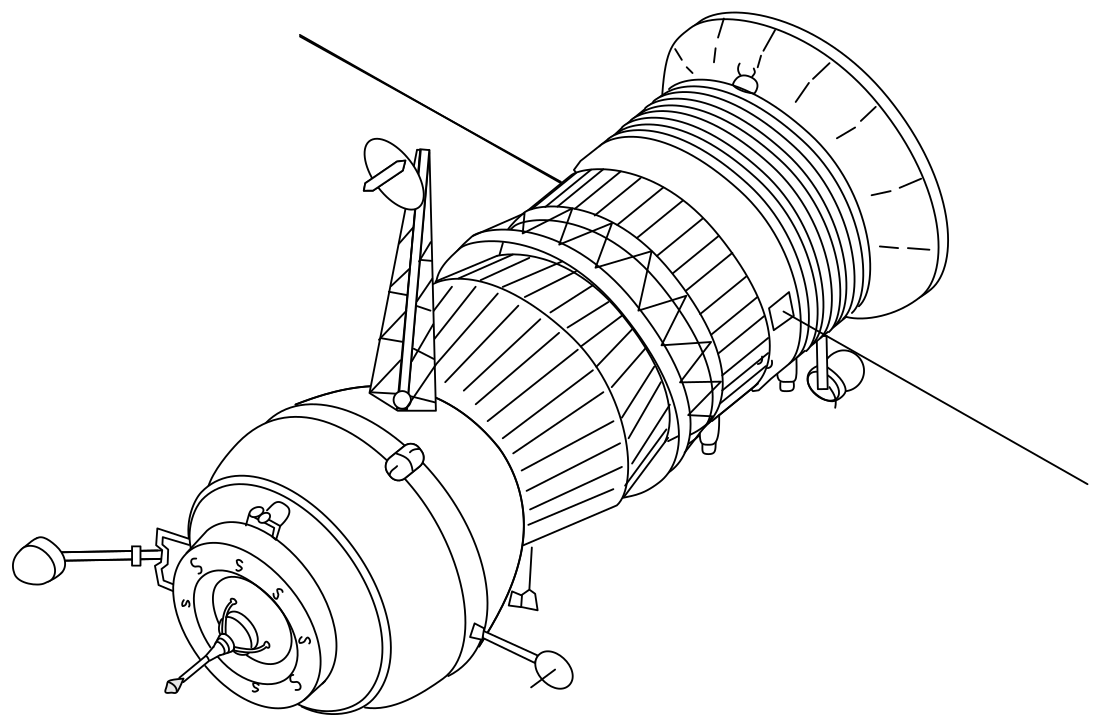Top Qs
Timeline
Chat
Perspective
Progress 17
Soviet unmanned Progress cargo spacecraft From Wikipedia, the free encyclopedia
Remove ads
Progress 17 (Russian: Прогресс 17) was a Soviet uncrewed Progress cargo spacecraft, which was launched in August 1983 to resupply the Salyut 7 space station.
Remove ads
Spacecraft
Progress 17 was a Progress 7K-TG spacecraft. The 17th of forty three to be launched, it had the serial number 119.[4][5] The Progress 7K-TG spacecraft was the first generation Progress, derived from the Soyuz 7K-T and intended for uncrewed logistics missions to space stations in support of the Salyut programme. On some missions the spacecraft were also used to adjust the orbit of the space station.[6]
The Progress spacecraft had a dry mass of 6,520 kilograms (14,370 lb), which increased to around 7,020 kilograms (15,480 lb) when fully fuelled. It measured 7.48 metres (24.5 ft) in length, and 2.72 metres (8 ft 11 in) in diameter. Each spacecraft could accommodate up to 2,500 kilograms (5,500 lb) of payload, consisting of dry cargo and propellant. The spacecraft were powered by chemical batteries, and could operate in free flight for up to three days, remaining docked to the station for up to thirty.[6]
Remove ads
Launch
Progress 17 launched on 17 August 1983 from the Baikonur Cosmodrome in the Kazakh SSR. It used a Soyuz-U rocket.[2][7]
Docking
Progress 17 docked with the aft port of Salyut 7 on 19 August 1983 at 13:47 UTC, and was undocked on 17 September 1983 at 11:44 UTC.[3][8]
Decay
It remained in orbit until 17 September 1983, when it was deorbited. The deorbit burn occurred at 23:43 UTC, with the mission ending at 00:30 UTC the following day.[3][8]
See also
References
Wikiwand - on
Seamless Wikipedia browsing. On steroids.
Remove ads

